Preserving the past to design for the future: the young couple reinventing their historic local metal factory

Yukiteru Tamura/Executive Director of Tamura Shoten & Kumi Tamura/Tamura Shoten Public Relations Manager, TEPPEN Leader
This corner of Kujo is alive with the sounds and sights of industry. Workers pack parts into stacked boxes as the noises of metal work create a backtrack from the factory behind them; local families pass by and laugh and joke with the staff. It’s a wholesome, almost nostalgic scene, but the Tamura Shoten factory is far from being stuck in the past.
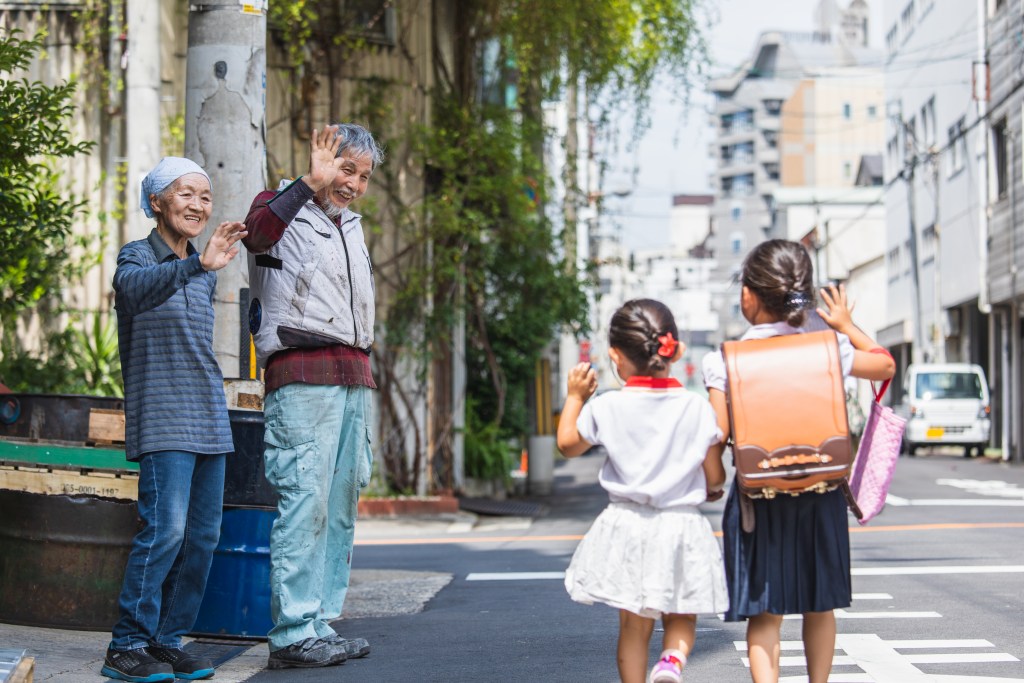
The Kujo district of Osaka was historically known as ‘iron town’ due to the high concentration of metal factories and businesses. However, in recent decades the number of city factories has been decreasing year by year. Tamura Shoten is owned by the third generation of a local family and dates back to the 1950s by Yukiteru’s grandfather. Along with his wife Kumi, they are opening a new chapter in the world of manufacturing by renovating their office with a modern, inviting aesthetic and developing unique upcycled metal products under the TEPPEN brand.
We spent time with the couple at Tamura Shoten’s beautiful HQ to learn more about what they hope to achieve for the factory and for their community.
‘Is that a café or a factory?’ A new kind of city business
“I wanted to brighten both Kujo and the future for our town factories,” Yukiteru told us, eloquently explaining the ethos behind this family-run business. This goal in mind, in 2022, Yukiteru and his wife Kumo took on the renovation of the whole historic factory.
“The people in the community have all been surprised to see our new office,” Yukiteru tells us “I was happy to see an older lady from the neighborhood come in and sit on the couch, thinking it was a new café; or to hear from the mother of a former classmate, ‘Your company is so beautiful now!’”.
The renovation retained many of the original factory features, twisting them with modern finishings and inviting elements such as plants and artwork. The transformation is so stylish that it’s easy to understand why some mistake it for a cool café, or hip concept store.
Founded in 1951 by Yukiteru’s grandfather, Tamura Shoten was first established as a manufacturer of bolts. Currently, the company is engaged in a wide range of manufacturing and sales, focusing on the production of hardware related to civil engineering and construction work, which is indispensable for building bridges and roads. Yukiteru took over the family business about 10 years ago.
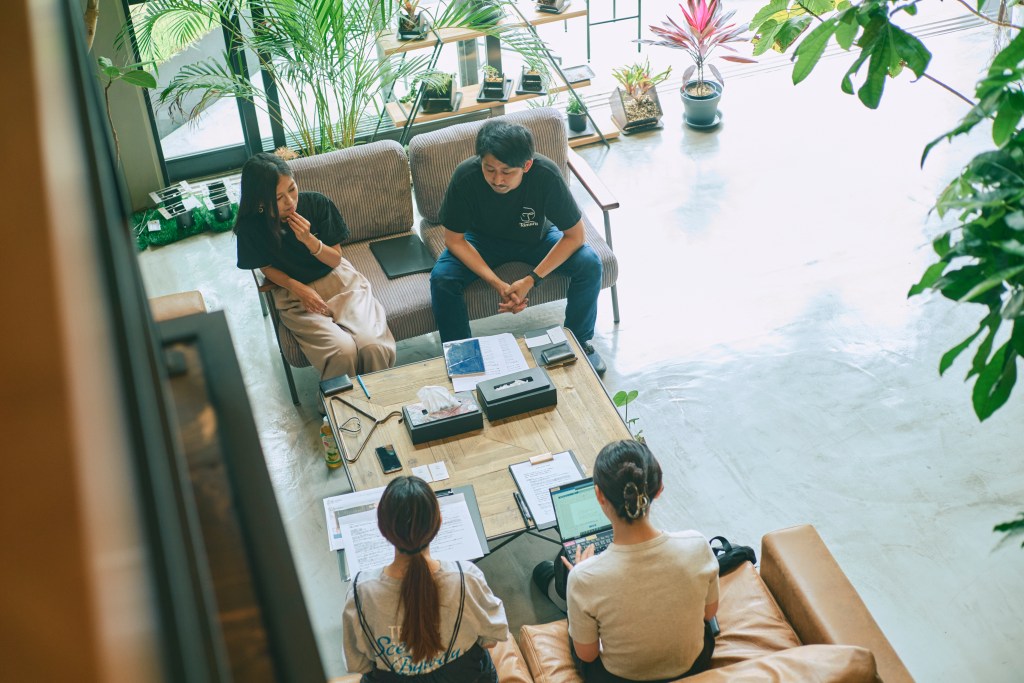
The reasons for the renovation go beyond the superficial – the experience and enthusiasm of the factory workers is also paramount. “I don’t think the image people have of a town factory is a very good one; it’s kind of dark and dirty,” Yukiteru told us. Working in an unapproachable environment is not good for employees or their families. I thought that if the town factories did not make major changes, this industry would surely be ruined. We wanted to make a big change, starting with the appearance, so that people would be proud to work for a cool company,” says Yukiteru, “but it wouldn’t mean anything if we simply made it look good.”
As well as considering the worker experience, the renovation was also carried out with the building and company’s legacy in mind. Each change and addition took account of what was already there. In order to express newness while respecting the long-cultivated traditions, the wood making up the counter was stained with iron powder from the rebar process, and paint containing iron powder was used on the exterior walls to give them a cool, modern look. Each detail embodies both the history and future of Tamura Shoten.
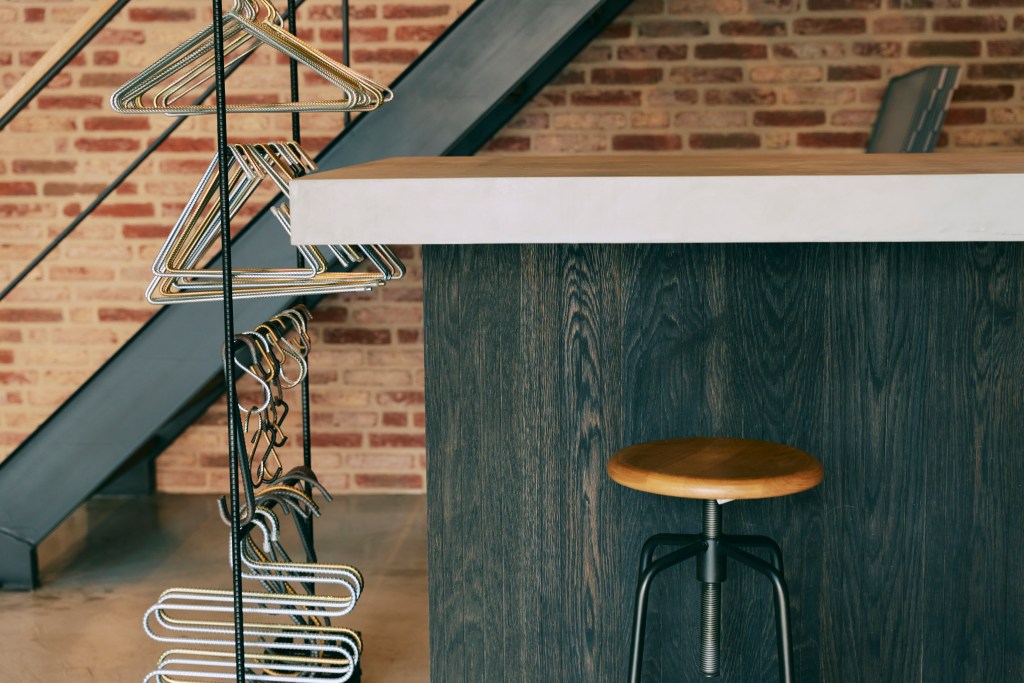
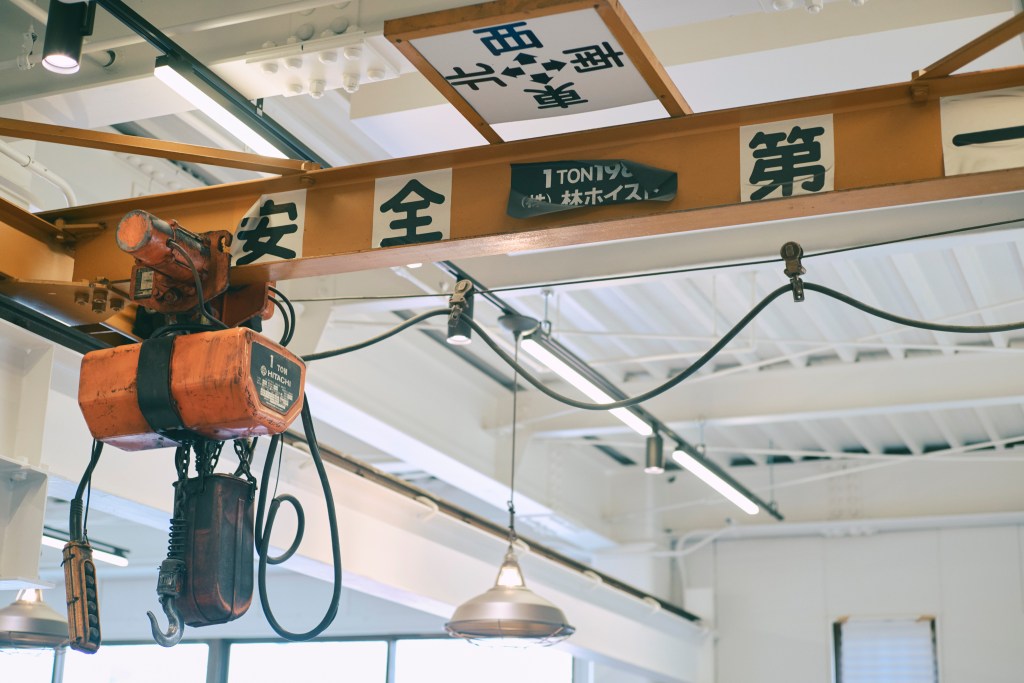
Traditionally craftsmen in the Kujo area work silently in town factories. Tamura Shoten stands out for the more interactive experience. As a newcomer to the industry, Kumi has brought a different perspective, not only in the way it looks, but also the whole ethos of how it’s run.
Challenging the industry norm from a sustainability perspective
The principle of upcycling and reusing came from Kumi, a newcomer to the world of manufacturing who was able to show Yukiteru that there was a different way of looking at the materials he was so used to.
Kumi was born in Nara Prefecture in central Japan, south of Kyoto. In her earlier career she worked as a food advisor for a major food manufacturer. “Back then, the concept of Sustainable Development Goals (SDGs) wasn’t so prominent, yet we were actively addressing the issue of food loss,” she explains. After getting married and moving to Osaka, Kumi wondered if the same kind of innovative thinking could be applied to iron: “What if we took discarded iron scrap and transformed it into interior goods?”.
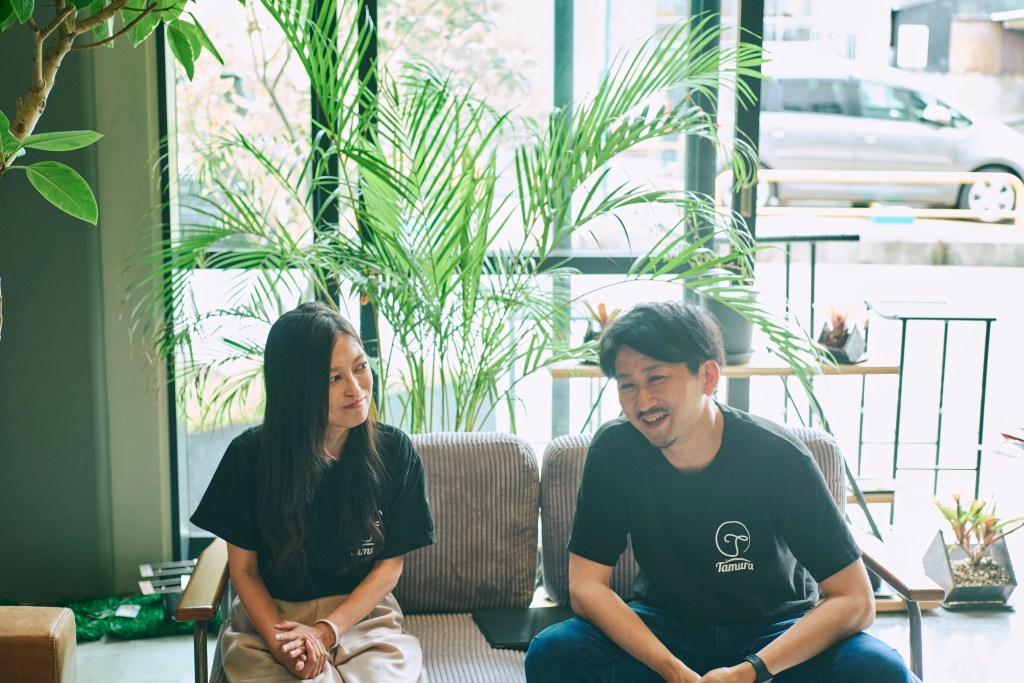
Kumi learned that the metal industry generates tens of millions of pieces of scrap every year and that it also requires enormous amounts of energy to melt and reuse the material. Despite having established an online store to sell scraps to vendors, in order to combat these issues, the company has still been grappling with this challenge.
“In our industry, it’s commonplace to throw away scrap. To be honest, I thought my wife’s idea might be a little difficult to realize”, Yukiteru explained to us, “but I decided to give it a try without too many expectations: even if we didn’t make a profit, it would be good to create a positive cycle for the industry.”
The idea resulted in the creation of TEPPEN, Tamura Shoten’s new brand whose name combines the meaning of two words with the same phonetic pronunciation: “teppen”: “てっぺん (meaning ‘the top of the mountain’) and “鉄変 (meaning ‘to change the shape of iron’)”. The new business, born from an idea that overturned the industry norm, unexpectedly generated a huge response.
A new move for Tamura Shoten
TEPPEN products such as magnets, incense holders, and clothes hangers start out as pieces of scrap metal, which are then transformed for their new purpose. The ‘Happy Weights’ used on tissue boxes are particularly surprising and impressive. This niche hit is essentially a steel weight to hold a box of tissues in place. Kumi explained the origin story of the product. “It was stressful for me to pick up a box of tissues with one hand while holding my child, and the box would fly away,” she said.
“I was convinced it (the weight) would be a hit, but my husband said, ‘No one will ever buy a product that’s just a hole in a piece of steel!’ So I uploaded it on Instagram to see if I could sell it on my own, and I ended up getting a lot of DMs asking, ‘Where can I buy it?’.
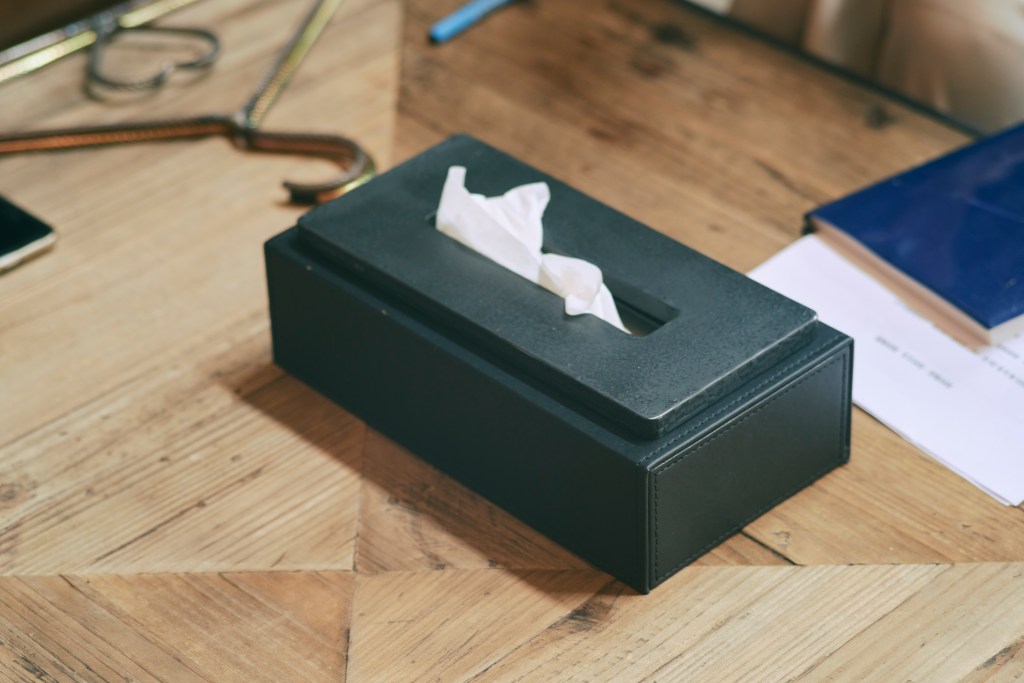
“When we sold our products in a pop-up store in a department store as an experiment, I thought no one would buy them,” says Yukiteru, laughing with the benefit of hindsight. “But when I saw many customers actually picking up the products, I realized that my wife’s idea was something I, who was steeped in this industry, could never have come up with. I thought it was really amazing,” he says.
Since then, the novel items from the town factory have continued to have a better response than the couple could have hoped for, including a collaboration request from an innovative food sample manufacturer and an inquiry from an apparel store.
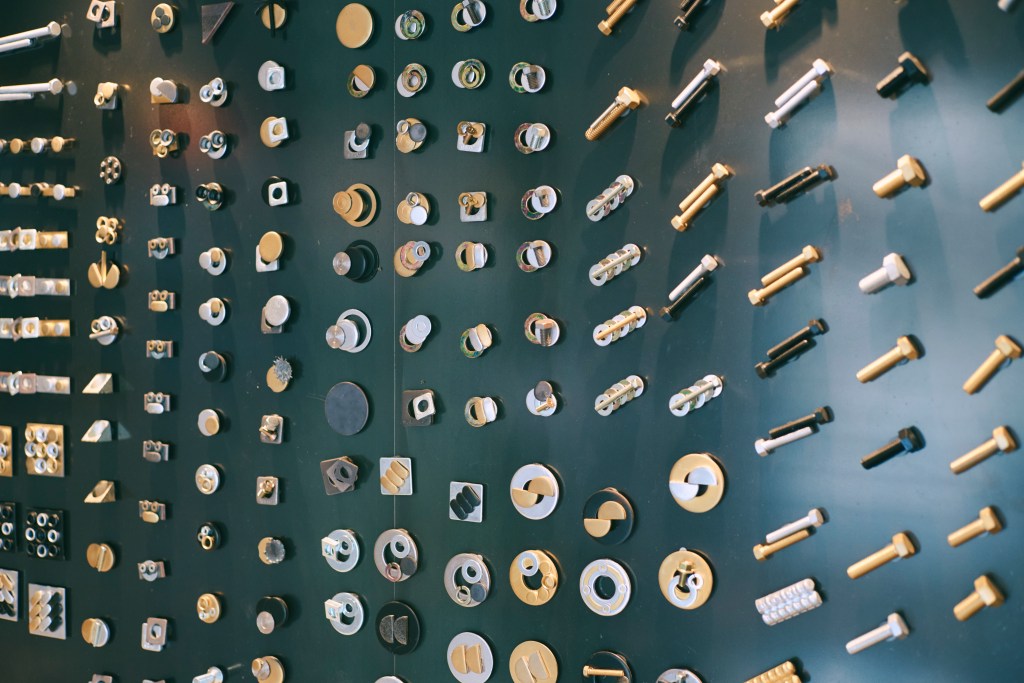
“I have so many ideas that come to me one after another,” Kumi laughs. She explains how she will first develop a drawing of a new idea, then explain it to the company’s craftspeople, a collaborative relationship that has brought her closer to the workers of Tamura Shoten.
“They were a little surprised,” says Kumi, explaining the workers’ initial reactions to the new designs, because it was a job that had never been done before, but they said, ‘I’ll do it. Bring me the drawings right away!’. Communication with the craftsmen has increased dramatically,” she says happily.
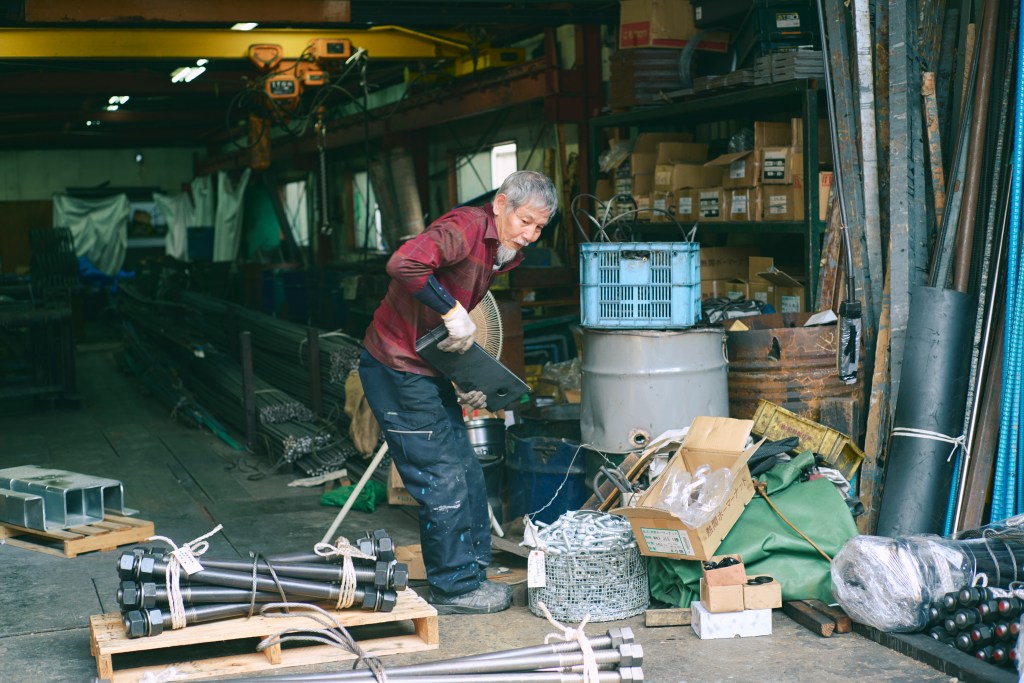
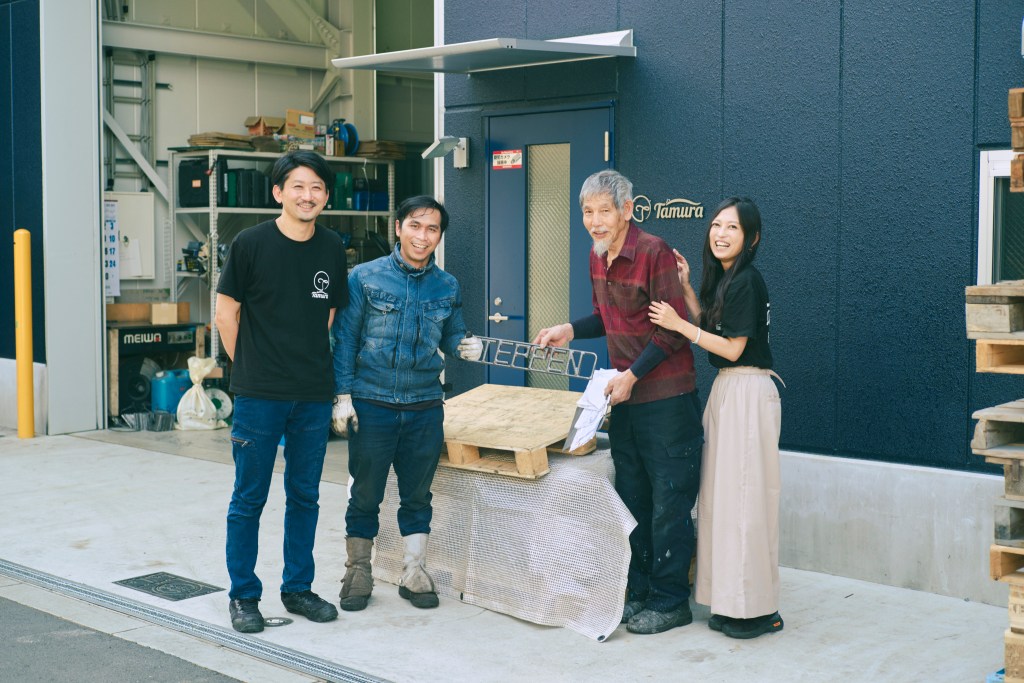
The couple refer to this process as a ”manufacturing journey,” in which each stage of product development, from sourcing materials to manufacture , is clear and visible, and this is the theme they set for TEPPEN. The Tamuras want to deliver products that not only look stylish, but have a human touch. In preparation for the full launch of TEPPEN, the company is currently in the process of focusing on opening an online store and showroom.
In addition, they are also working on a plan to offer a more diverse range of products by having two different product ranges (B2B and B2C) following each of their ideas – Yukiteru’s ideas are more geared towards metal industry professionals, while Kumi’s creations are more targeted to general consumers. They hope that the two contrasting poles will complement and cross-pollinate one another.
Promoting Kujo’s manufacturing culture to the world
Tamura Shoten’s activities are still expanding, and everything they’re doing involves their local community. For example, the workshop was used to decorate eco-bags with stamps made from scrap metal – a big event, drawing in 130 participants in a single day and spanning all ages from infants to the elderly.
They also worked with students at the local technical high school, which takes care of everything from planning to product sales, and the result will be exhibited at the global Expo being held in Osaka in 2025.
Yukiteru looks ahead to this event as an opportunity to bring people to their town and in doing so, to learn about its local industrial culture.
“Kujo is a very conveniently located but little-known town”, he explains. “We would like to promote Kujo’s manufacturing culture to the world by, for example, holding workshops where guests from overseas can participate, or buy little products as souvenirs – we want to make people want to get off the train here,” says Yukiteru.
We think Tamura Shoten’s motto encompasses rather beautifully the company’s inspiring ambition: “Keep challenging yourself — that’s how the town factory will never rust.” They are as creative and ambitious as they are rooted in their local community and traditions. It’s a winning combination.
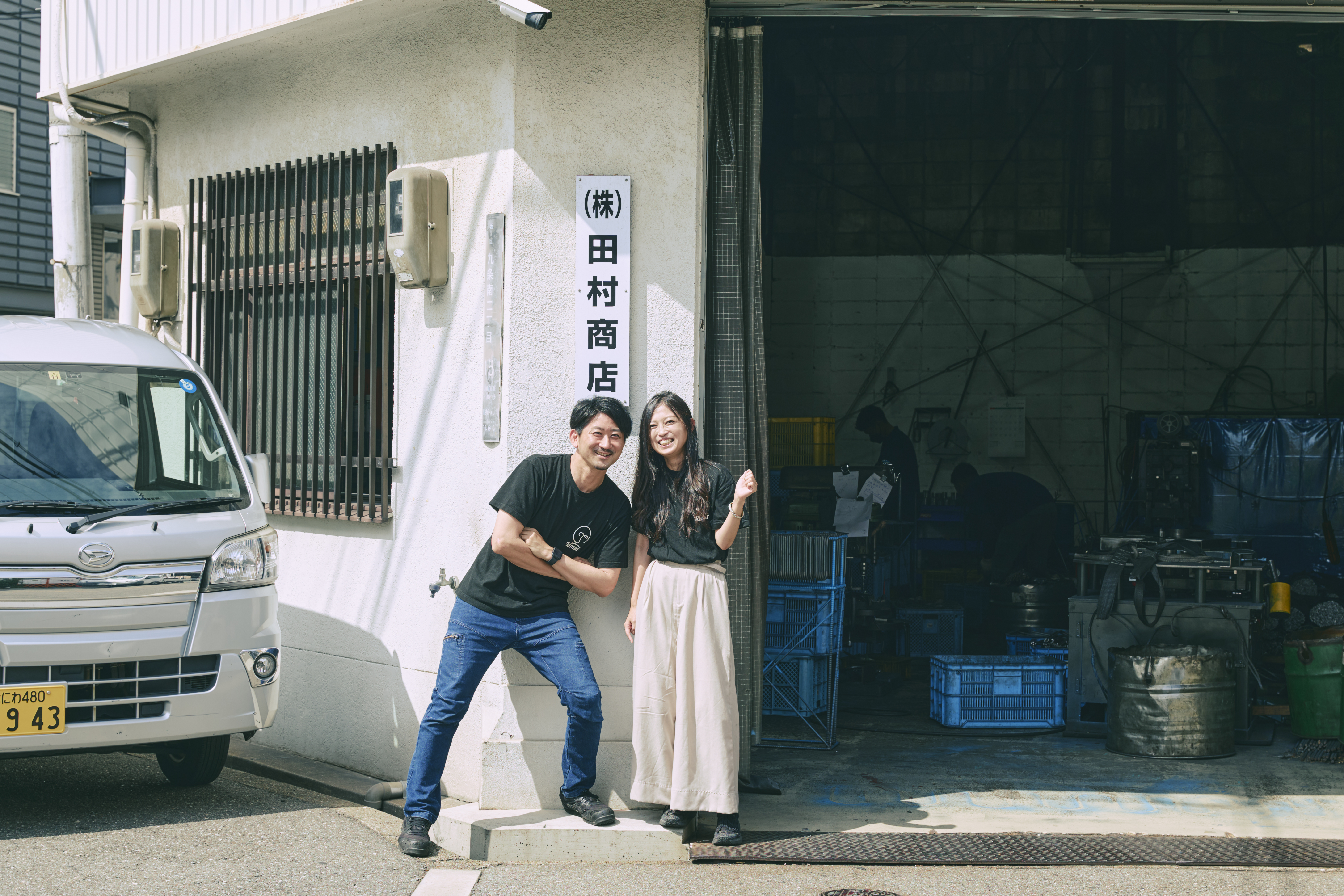
Profile
Born and raised in Kujo, Managing Director Yukiteru worked for a steel trading company before taking over the family business, which was in need of work and attention. His wife, Kumi, introduced sustainable ideas to the company based on her own professional experience, and also looks after public relations for the business. They are collaborating on developing ways to successfully bring residential areas and factories closer together.